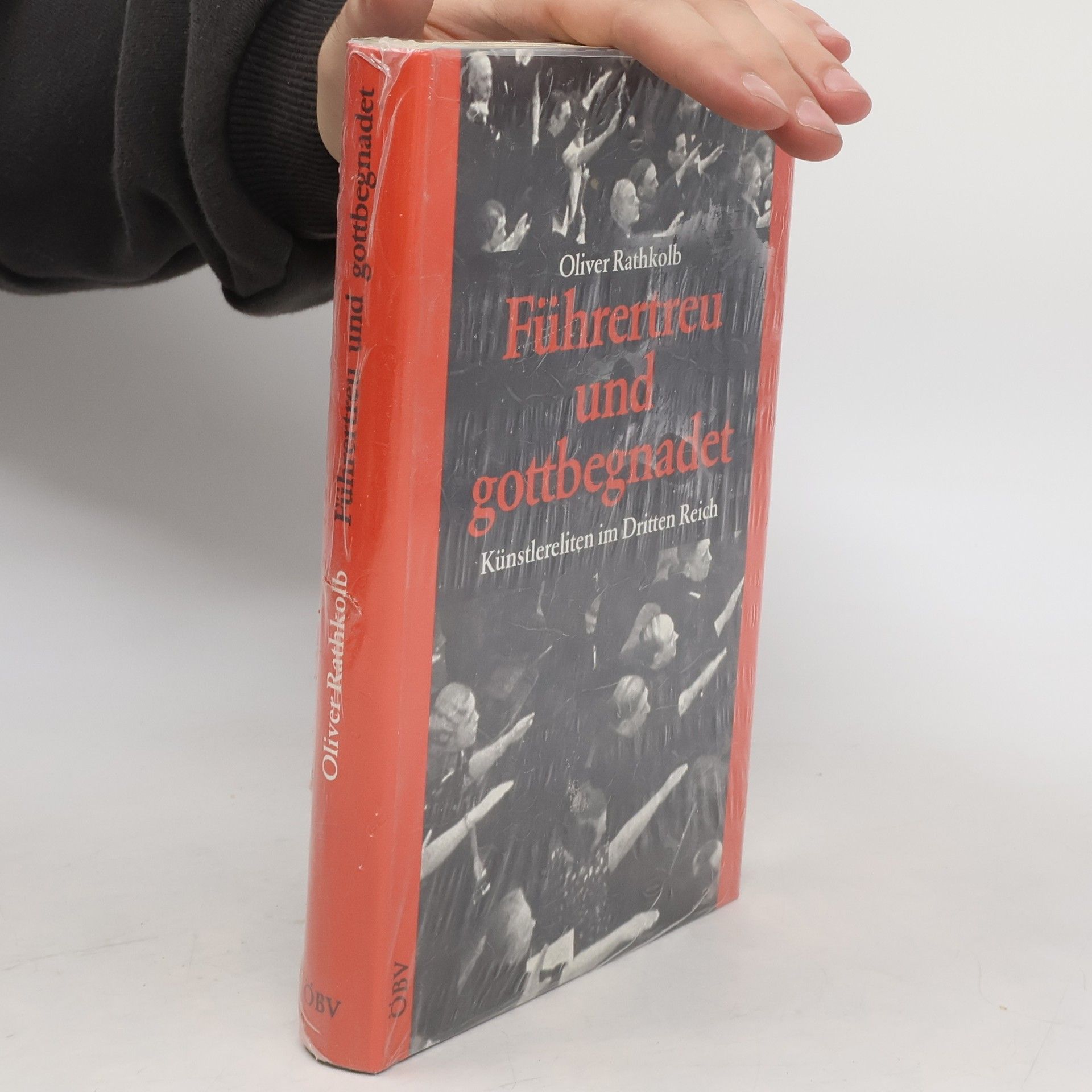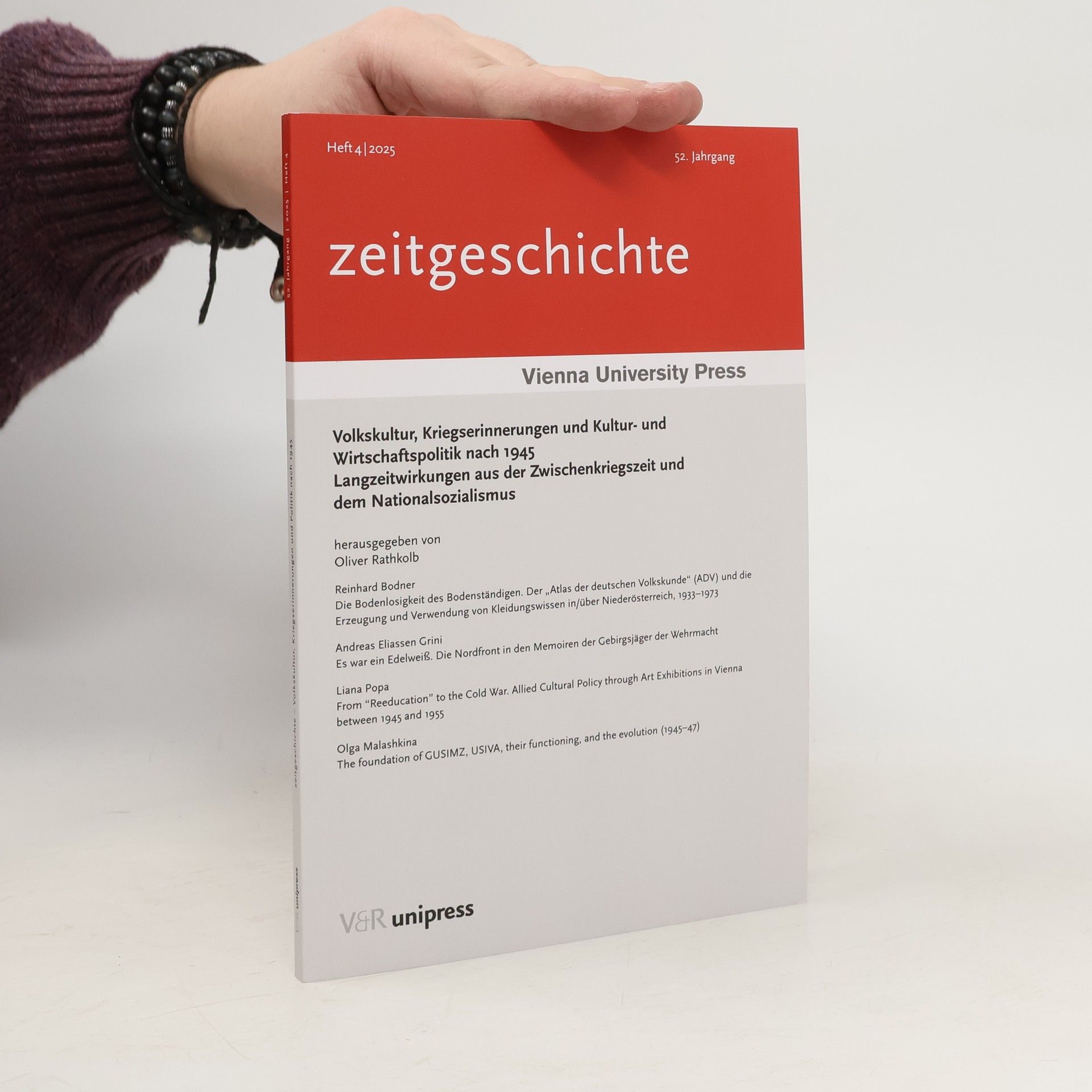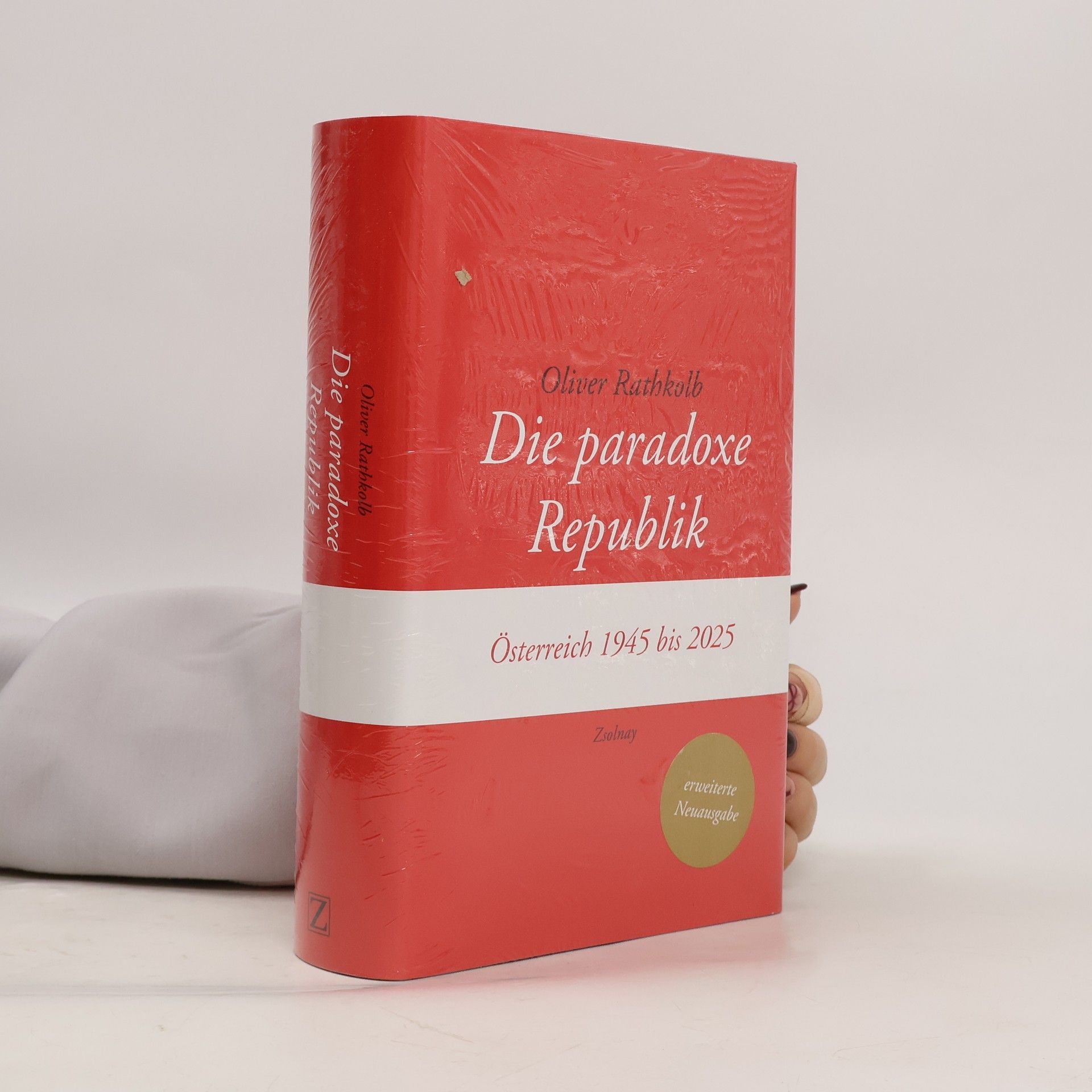Oliver Rathkolb Book order (chronological)






Oliver Rathkolbs »Biografie der Republik« (Ernst Schmiederer, Die Zeit) über die Geschichte Österreichs von 1945 bis 2025 Achtzig Jahre Kriegsende, siebzig Jahre Staatsvertrag, dreißig Jahre EU-Mitgliedschaft: Oliver Rathkolbs »Standardwerk zur Geschichte Österreichs« (Die Zeit) in einer aktualisierten Fassung. Vom »Bollwerk des Deutschtums im Osten« über die »Brücke zwischen den Blöcken« zur »Insel der Seligen« und zum EU-Mitglied: Die Bilder, in denen sich Österreich in den vergangenen Jahrzehnten spiegelte, haben sich gewandelt. Geblieben ist die merkwürdige Gleichzeitigkeit von Größenwahn und Minderwertigkeitskomplex. Geblieben sind auch die Paradoxien: ein neutrales Land, dessen Westbindung außer Frage steht; ein Land, das sich demokratisch nennt, in dem wesentliche Entscheidungen aber nach wie vor außerhalb des Parlaments getroffen werden.
200 Jahre Wiener Städtische Versicherungsverein
- 288 pages
- 11 hours of reading
Der Wiener Städtische Versicherungsverein feiert sein 200-jähriges Bestehen und blickt dabei auf eine bewegte Vergangenheit zurück. Historiker Prof. Oliver Rathkolb zeichnet die Geschichte der Versicherung im Kontext ihrer Zeit und der Personen nach, die sie geprägt haben.
Austria 1970-2020
- 76 pages
- 3 hours of reading
Die neun Bände bieten eine kompakte und anschauliche Darstellung der Zeitgeschichte Österreichs, fokussiert auf die Bundesländer. Experten beleuchten wichtige regionale Ereignisse vom Ersten Weltkrieg bis zur Gegenwart und behandeln Themen, die in großen Geschichtswerken oft vernachlässigt werden. Ideal für Geschichtsinteressierte.
Der Dirigent Hans Swarowsky (1899-1975):
Musik, Kultur und Politik im 20. Jahrhundert
- 1056 pages
- 37 hours of reading
Hans Swarowsky ist eine der interessantesten Figuren der jüngeren österreichischen Musikgeschichte. Diese Publikation bietet erstmals umfassende Studien und Materialien zur in vielen Punkten bislang unaufgehellten Biographie Swarowskys und unternimmt den Versuch einer aufführungsgeschichtlichen Einordnung dieses ikonischen Dirigierlehrers und in seiner Bedeutung erst noch zu würdigenden Dirigenten. Hans Swarowsky (1899 1975) gehört aufgrund seiner intellektuellen und künstlerischen Vielseitigkeit als Dirigent, Pädagoge, Autor und Übersetzer, durch seine engen Beziehungen zu Schlüsselfiguren der Musik des 20. Jahrhunderts wie Schönberg, Webern oder Richard Strauss, durch seine bis heute nachwirkende Tätigkeit als Dirigierlehrer und durch seinen stets unkonventionellen Zugriff auf Interpretationsfragen zu den interessantesten Figuren der jüngeren österreichischen Musikgeschichte. Wegen des reichen persönlichen und institutionellen Hintergrunds und der Strahlkraft Swarowskys liefert die Auseinandersetzung mit seinem Leben und Wirken zugleich Beiträge zu 75 Jahren Kultur- und Zeitgeschichte.
Der Autor analysiert detailliert das Verhalten von Carl Orff in der Zeit des Nationalsozialismus sowie die politische Wahrnehmung seiner Werke, einschließlich des Orff-Schulwerks und der Carmina Burana. Dabei wird untersucht, wie Orffs Musik in der NS-Diktatur genutzt und interpretiert wurde, was zu einem tieferen Verständnis seiner künstlerischen Position und der gesellschaftlichen Kontexte führt, in denen er wirkte.
This biography reveals Von Schirach's aristocratic family background; three of his four grandparents were from America.
Hitler's Vienna delves into the formative years of Adolf Hitler in Vienna, where he lived from 1906 to 1913 before moving to Munich at age twenty-four. This work presents a cultural and political portrait of the city, contrasting it with the modern, artistic image often associated with figures like Freud and Mahler. Instead, it reveals a city rife with fear and ethnic tension, where many rejected modernity as overly international and Jewish. This environment fostered racist political ideologies, exemplified by a parliament member's chilling remark about Jews. Brigitte Hamann captures the disturbing ideologies that permeated the Hapsburg capital, providing context for Hitler's development. She portrays him as a moody, curious, and painfully shy young man from the provinces, drawing on previously untapped sources, including personal accounts and records from homeless shelters where he spent nights. This comprehensive account illuminates how his experiences in Vienna shaped his future actions and beliefs. Hamann's work represents a significant contribution to the scholarship surrounding Hitler, offering insights into the influences that molded one of history's most notorious figures.
Schirach
Eine Generation zwischen Goethe und Hitler
Das Angebot des „Führers“ an den 18-jährigen Baldur von Schirach ist verlockend: „Solche jungen Männer braucht die Partei, braucht Deutschland!“ Der angehende Student der Germanistik und Kunstgeschichte kann diesem Ruf Hitlers nicht widerstehen, es beginnt eine steile Karriere.1930 wird er zum Reichsjugendführer ernannt, als treuer Paladin seines Herrn schwört er die „Hitlerjugend“ auf die „braune Revolution“ ein. Er träumt von einem faschistischen Europa unter deutscher Führung und lässt als Gauleiter von Wien die jüdische Bevölkerung in die Todeslager deportieren.1946 wird Baldur von Schirach, inzwischen Vater von vier Kindern, in Nürnberg wegen Verbrechen gegen die Menschlichkeit zu 20 Jahren Haft verurteilt. Seine Familie muss mit den düsteren Schatten der NS-Verstrickungen leben …



